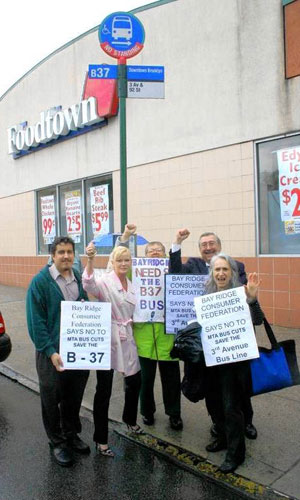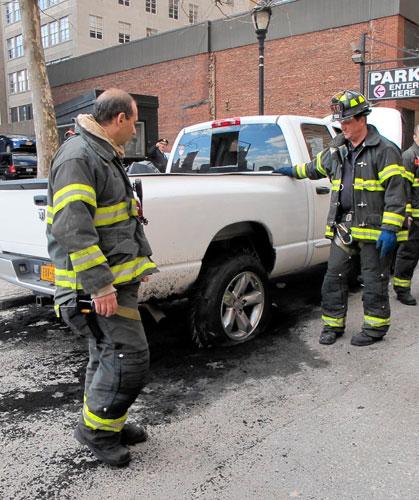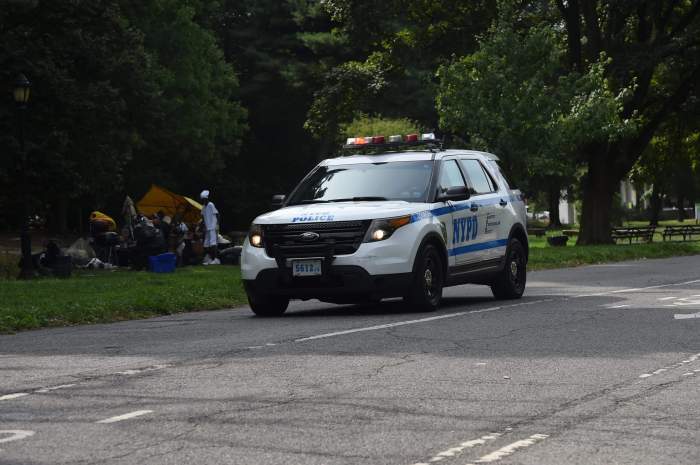City and state officials returned more than $400,000 in unpaid wages to building service workers of a luxury Downtown Brooklyn condo building as part of a multimillion-dollar legal settlement Tuesday.
State Attorney General Letitia James and the city Comptroller Scott Stringer handed the back pay to 11 workers employed at the Brooklyn Warehouse 180 — a ritzy development at 180 Nassau St. — as part of a $2.9 million settlement that government officials reached in November with the developers, who robbed the employees of their pay, according to James.
“They swindled their building service employees out of their hard-earned wages,” said the state’s top prosecutor. “It’s called wage theft, plain and simple.”
The city and state watchdogs reached the settlement with two limited liability companies — Brooklyn Warehouse 180 LLC and Mica Gabe Brooklyn LLC — which are listed as the current and former owners of the building near Duffield Street.
According to legal filings, those two companies — which are associated with Manhattan-based developer Pink Stone Capital Group — failed to pay legally-required wages to doormen, porters, and a superintendent between 2014 and 2016.
As part of a tax break that the owners had applied for under the state’s property tax law, the landlords were supposed to pay building service employees prevailing wages set by Stringer’s office of between $17 and $24 per hour, and provide them with various other benefits — or set aside a number of below-market rate rental units.
But the developers violated the state’s so-called “Section 421-a” rebate by paying newly-hired doormen just $12 per hour — rather than the required minimum of $17.58.
The developers also stiffed a newly-hired superintendent by shelling out just $17.50 an hour as opposed to the mandated $24.26 an hour, thereby breaking their legally-binding commitment, according to Stringer.
“We’re … sending a clear message to unscrupulous developers, contractors, and landlords that they better follow the rules when they get millions of dollars in property tax breaks,” he said.
The 11 workers recouped between $5,500 to $80,000 back in wages each, depending on their hours worked and hiring date, according to officials.
Building services union 32BJ SEIU — which alerted officials to the wage theft — and will receive $450,000 of the settlement, as whistleblowers are entitled to a percentage of the proceeds under the state’s False Claims Act.
The remaining $2 million in damages will go to the city and state to make up the lost tax revenue.
Government officials hope the recuperated wages will serve as a deterrent to future wage theft, as well as help underpaid workers — like one porter, who said it was difficult for him to make ends meet as a result.
“I was not able to do the things that I needed to do to take care of my family, to pay bills and to pay them on time,” said Wayne Peters. “The wage theft is not a little thing. It is hard, it has a big impact.”























